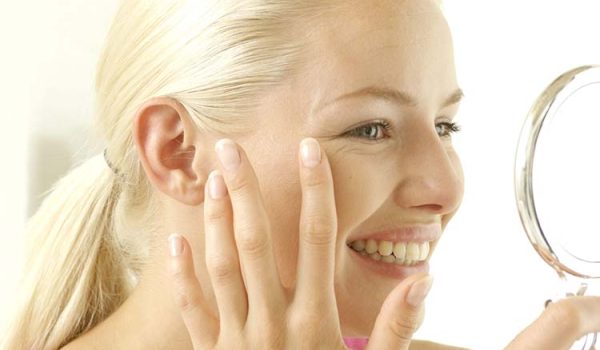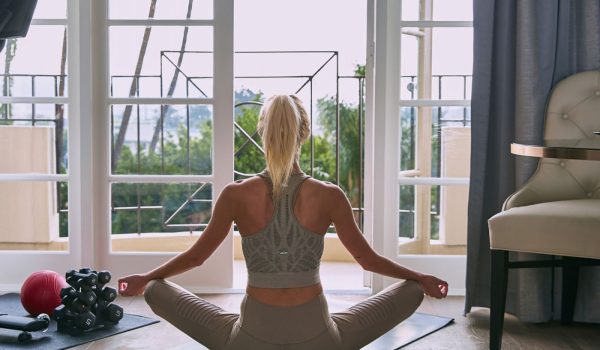Lessons in hygiene start from an early age – but let’s face it sometimes well-meaning but ill-advised friends pass on information leaving you to wonder ‘Really?’ Well, wonder no more – it’s time to bust five common myths about freshening up!
When it comes to feminine hygiene there’s a lot to learn. How bad is good old soap-and-water for instance – and the reasons a soap-free product like Verona is best when it comes to intimate care. Well, while we know not to use soap on our faces, we’re not talking about our faces here! Jo Lamble sat down with Dr Alia Nasser to chat about common misconceptions when it comes to showering, bathing, which products to avoid, and – yes, even how to dry off afterwards.
This isn’t about beauty advice either – it’s good, solid medical advice you’ll want to hear.
To learn more about good practices in feminine hygiene click here.
Jo Lamble: Hi, I’m Jo Lamble and I’m here with Dr Alia Nasser and we’re going to be opening a conversation about feminine hygiene and there may be a few surprises in there.
Alia, every woman wants to stay fresh and smell good and keep clean but the rule book says no douching. Why is that?
Dr Alia Nasser: Well, it’s natural for women to have secretions and these secretions might have a light smell to them and that’s natural, each woman smells different and this is a way for the vagina to protect itself from infections. We don’t recommend douching of course. Douching is a word in French, that means to wash and it was a big practice before and now it’s not as popular anymore except in some countries overseas and sometimes a little bit in Australia as well. So what they do is they… it’s either pre-packaged water or mixed with some detergent or vinegar or something like that, that’s pre mixed and women usually squirt it into their vagina to wash and it’s all based on mis-information, because we don’t need to wash the vagina, it’s a self-cleaning area. These women they think they can use it to clean infections which is not the right thing of course, or after sexual intercourse, or during that time of the month when they might have a discharge and some women might do it sometimes after sexual intercourse when they think they are going to fall pregnant and it’s all of course, wrong. So we do not need to douche.
Jo Lamble: Ok.. so there’s a lot to remember, there’s a lot of feminine hygiene products on the market aimed to make us feel fresher, which are the ones we should definitely avoid?
Dr Alia Nasser: We should avoid using products that have parabens in them, preservatives and heavily scented products as well. Sometimes you know two women can use the same product and one will have an irritation and the other one doesn’t, it doesn’t mean it’s safe for everyone but it doesn’t mean it irritates everybody but these are the ones we should generally avoid. The vagina’s the second area in the body that has the highest number of bacteria after the gut or the bowel and this healthy bacteria maintains an eco-balance in this area in this area where we don’t get infections and things like that so that’s why it’s important to use a product that will maintain this pH. So a lot of soaps actually have alkaline which means they have a high pH and will actually elevate this pH. The acidic pH changes to an alkaline one and then we are more susceptible to getting these infections.
Jo Lamble: We seriously don’t know these things as women so it’s so wonderful that we’re talking about it. I’m nearly 50 and I have no idea that this pH balance is so important. Let’s just talk about the pros and cons of showering versus jumping in the bath.
Dr Alia Nasser: Well of course so showering is you know you just go and have a shower, but with bathing you are sitting in the water for a long period of time. That bath tub that you’re sitting in might be contaminated with a lot of bacteria and sitting in there for a long time means that this water will penetrate the vaginal canal and destroy that imbalance. Again, if you’re using bath salts it interferes with the process as well and then overusing of soap and things like that.
Jo Lamble: So is it ok to have a bath as long as you then maybe restore the pH with a nice product that would be gentle?
Dr Alia Nasser: That’s right.
Jo Lamble: And I suppose you’re saying that my hot tub, outside is not great for me to be in, night after night.
Dr Alia Nasser: Yeah, because some of these tubs contain a lot of bacteria especially if it’s used by different people.
Jo Lamble: Well just the family.. but! I will, I will make sure that I do my best to restore the area afterwards. So you’re saying that only wash, once a week? Once a day?
Dr Alia Nasser: Once a day.
Jo Lamble: and the drying again, not harsh rubbing but gentle.
Dr Alia Nasser: Yes, that’s right. Again, you know we talk to girls about.. I see girls with recurrent bacterial vaginosis or thrush or even recurrent urine tract infections and we always talk about wearing underwear that doesn’t have synthetic polyester in it or nylon and tight underwear, tight pants like leather for long periods of time, washing after sexual intercourse, when they go to the toilet to wipe from the front to the back as well so you’re not introducing bacteria into the vaginal canal because there are periods for some women where they will be more susceptible to getting infections, like during their menstrual cycle or being on the pill, being pregnant or going through menopause as well.
Jo Lamble: Ok so it sounds like if you have got a problem with discharge or any infection you think you might have it’s not what you add to the area, it may be going to see your doctor
Dr Alia Nasser: That’s right.
Jo Lamble: and getting the diagnosis,
Dr Alia Nasser: and not to over wash and not to think it’s because of your poor hygiene or you’re not washing enough
Jo Lamble: Because that’s what we immediately think don’t we? We’re thinking ok well I better have another shower or maybe a long bath to wash this out..
Dr Alia Nasser: Or douching…
Jo Lamble: And you’re telling the exact opposite
Dr Alia Nasser: But yeah to avoid because sometimes over cleaning the area you’re stripping away these secretions and you’re upsetting the environment.
Jo Lamble: And you need it.
Dr Alia Nasser: Yeah, that’s right.
Jo Lamble: Thanks Alia, they are just brilliant tips. Now for more information on feminine hygiene just visit the carousel.com and we’ll see you next time.
By Verona
What’s your favourite way to improve feminine hygiene? Share your own fresh tips below…







Good blog
Jo is amazing!
Great news. We all found it really interesting, too. There was much we didn’t know before doing this article.
I havent used anything but water ‘down there’ for over 8 years. Ive never had even a slight odour according to my partner..nor have i had even one UTI …i throughly recommend h20..and thats it..